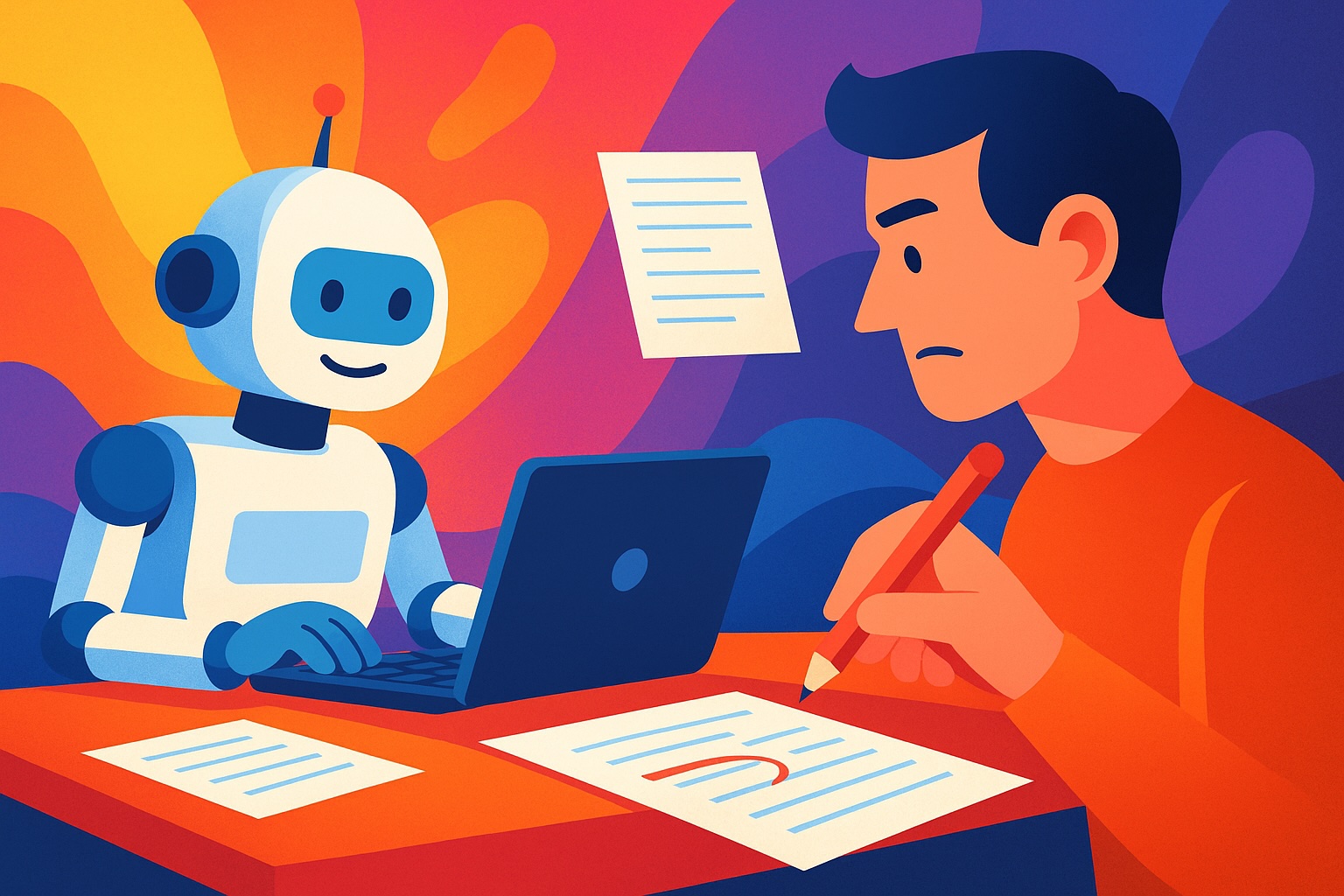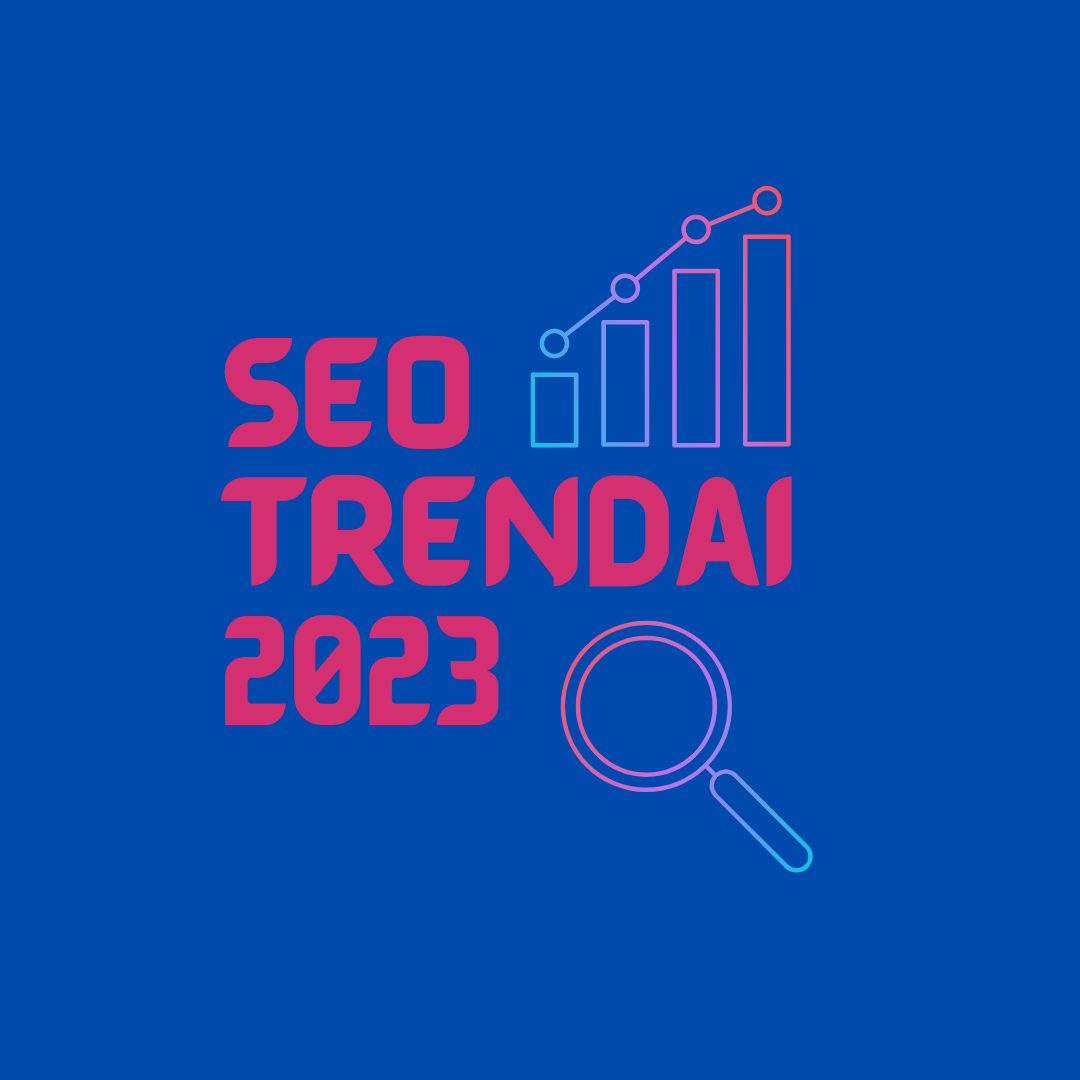
Artificial Intelligence (AI) writes fast, a ton, and sometimes quite well. But can we always trust it? Especially when it comes to SEO texts, where it's important not only to sound fancy, but also to provide accurate, up-to-date information in order to rank high in search engines. Let's talk about the signs of automated content creation, and what you can do to ensure that AI is a useful tool and not a source of risk.
Signs your content has been created by artificial intelligence
Incorrect punctuation
AI often uses punctuation according to the rules of other languages. For example, the long English dash (—) often appears instead of the Lithuanian hyphen (-), quotation marks are used incorrectly, or sentences are over punctuated. This is especially common when the text is first written in English and then automatically translated into Lithuanian.
Keyword stuffing
One of the old and nowadays ineffective SEO techniques - frequent keyword repetition - still occurs in AI generated content. If a keyword is repeated too often, even in natural-sounding sentences, it can not only put off the reader, but also be negatively evaluated by search engine algorithms.
Unnatural or translated language
Artificial intelligence often constructs sentences based on statistical models that process millions of texts, mostly in English. This is called Natural language processing (NLP). Although NLP technology is constantly improving, it still tends to transpose the structures of other languages into Lithuanian, resulting in strange-sounding sentences, unusual word combinations, or an inappropriate stylistic tone.
For example, "photo editing" can be replaced by "photographic image enhancement", which sounds artificial and does not correspond to the actual usage. And this is important for connecting with the reader and ensuring that the text is intuitively understood.
Repetitive thoughts
AI generates text by predicting the most likely sequence of words based on the examples it has been trained with. If the prompt is not accurate enough, the model will often circle around the same idea, repeating it in different words. This is particularly pronounced in longer texts, where AI programmes, lacking content planning skills, may present the same idea three times in a row, but with slightly different wording. Unlike humans, AI has no intuitive sense of when an idea has been exhausted, which can make the text incoherent and frustrating to read.
Factual errors and outdated information
Artificial intelligence does not have the ability to critically assess the reliability of sources, which can lead to errors and distortions in content. This is particularly true in sensitive areas such as law, medicine or politics, where even a small inaccuracy can have reputational consequences. AI models do not consider the context or relevance of the information when generating content, and may therefore provide inaccurate, outdated or obsolete knowledge. For example, it may state that asbestos is still a widely used material, even though it has long been banned in many countries.
Another contributing factor is that many of the AI models work with a time restricted database. If a free or limited version is used, the information can only be updated up to a certain date (e.g. a year ago or even further back). As a result, texts may lack up-to-date details on changes in laws, technology news or product updates. Such inconsistencies not only damage the content itself or its SEO value, but can also undermine the reader's trust in the brand or website.
Why shouldn't you blindly trust artificial intelligence?
Artificial intelligence builds content based on previous data and a statistical probability model. It doesn't understand meaning in the same way a human does - it predicts what word "should" go next, but it doesn't know if that word really fits the context, or if it's accurate to the facts.
This means that even a very professionally looking text can be misleading, out of touch with reality or worthless in terms of information. Such content is particularly dangerous for businesses that build trust with their audiences - even a single false phrase can have negative consequences.
In SEO terms, search engines are increasingly able to recognize automatically generated content without added value. If the text does not answer real questions or conveys general, superficial information, it can be classified as low quality content. Such texts are ranked lower and the website may lose authority and visitor trust.
In addition, the algorithms are based on E-E-A-T criteria (experience, expertise, authority, trustworthiness). If a text does not comply with these principles - for example, if it contains factual errors or does not have a clearly identified author - it will be assessed negatively. This is particularly true for topics where specialized information is important (medicine, finance, law, etc.).
How to get quality results from AI?
AI is not a writer with a vision - it's more like a highly educated assistant that doesn't always understand the context. Therefore, to get a good result, it is not only important to "ask for the content", but also know how to do it efficiently and use your own time and knowledge to correct, fact-check and be a real content creator yourself.
1. Start with a precise query
The most important part of the process is the prompt. Without specifying what the piece of text is, who it is for and what tone it needs to be in, the AI will take an "average" of everything it knows. It is therefore worth clearly specifying the appropriate language, the target audience, the emotion, the style (e.g. serious, witty, advisory, expert) and even the structure. The clearer the direction, the more precise the result.
2. Review, edit and fact-check
The resulting text should not be published simply by copying. Even if it looks coherent and smooth, it should be revised: remove repetitions, soften artificial language, check for outdated or inaccurate information. It is particularly important to assess facts, check reliable sources or obtain expert opinion for more complex topics.
3. Feel free to rewrite
Sometimes it takes longer to correct each sentence than it does to simply rewrite a paragraph in your own language. AI may be great at generating the main idea, but the layout may be unnatural. In such cases, it is worth using the AI only as a rough draft and shaping the final version yourself.
4. Update content regularly
Especially for text that covers topical issues, legislation, product news or services. Even well-written text can be out of date after a year, which not only hurts search results but also the credibility of your brand.
5. AI is a tool, not a writer
Artificial intelligence can be a facilitator, a tool to help generate ideas and suggest structure. But the creative process, the responsibility of the content and the nuances of the language should remain in human hands. It is the person who feels the context, the audience and the true value of the communication - and AI only makes it happen faster and can make planning easier.
When is artificial intelligence useful for content creation?
While we have focused on the shortcomings of AI content in this post, it is important to understand that AI is not the enemy and its usefulness depends directly on how it is used. When applied properly, it can be a great help to content creators, SEO specialists or marketing teams.
First and foremost, AI helps to overcome the so-called "blank page" problem. When it comes to coming up with a structure, starting to write or generating ideas, it allows you to get a quick start and get the creative process moving. This is particularly useful for large-scale projects requiring dozens or hundreds of pieces of content. AI should be used to generate the foundations, while the human should take care of editing and tailoring for a specific audience.
In addition, AI technologies can process information efficiently, for example, by organizing summaries from a wide range of sources, or by providing possible topic elaborations. This saves time in data collection, although it is still necessary to critically evaluate sources and further check facts.
Finally, AI is ideal for comparing versions of content or for A/B tests, allowing you to quickly generate multiple versions of headlines, meta-descriptions, or even the start of an entire post, and then choose the one that best meets your objectives.
Most importantly, AI should not be the end source of content. It is an assisting tool that makes work easier but does not take over responsibility. The best results come when AI and human expertise work together - one generates, the other evaluates, refines and builds a relationship with the reader.
Do you think AI was used to create this article? If so, what gives it away? :)
Artificial intelligence is the ability of computer systems to perform tasks that normally require human intelligence, using complex algorithms, machine learning and data analysis. AI allows machines to learn from experience, recognize visuals, understand natural language, make decisions and automate complex processes. AI is central to technological development and is used in a wide range of areas: automated customer service (chatbots), medical diagnostics, autonomous vehicles, optimizing manufacturing processes, analyzing financial data, fostering creativity (e.g. content generation, design), increasing the efficiency of business processes, etc.



